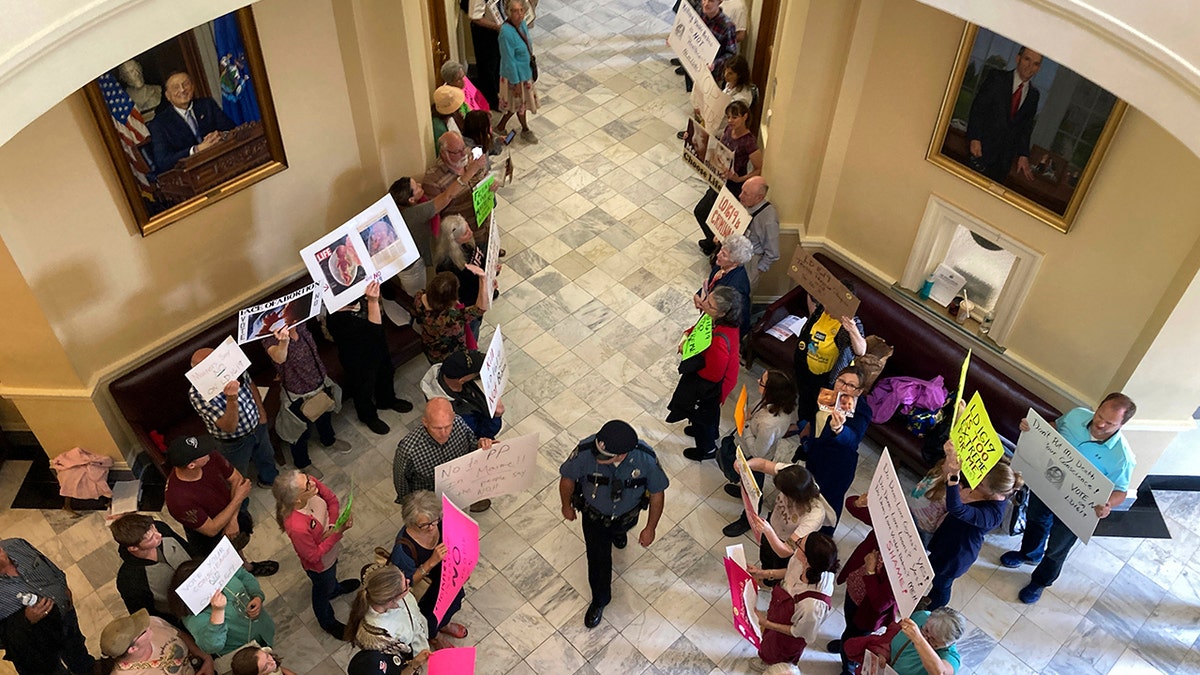The Maine House of Representatives voted 73-69 on Tuesday to significantly broaden abortion access, moving the bill one step closer to the governor's desk. A final vote in the Senate, which previously supported the measure, is needed before it reaches Governor Janet Mills.
The bill's passage followed a day of intense debate and protests at the State House, with opponents voicing strong disapproval, holding signs, singing hymns, and chanting against the legislation. The current law prohibits abortions after fetal viability, typically around 24 weeks, except when the mother's life is at risk. The proposed legislation would permit later-term abortions if deemed medically necessary by a physician.
Critics argue that the bill goes too far, with some representatives expressing deep personal concerns. Rep. Tracy Quint characterized the bill as extreme, while Rep. Katrina J. Smith, who gave birth to a healthy child after a dire prognosis, cautioned against placing absolute trust in doctors.

Demonstrators opposed to a bill to expand abortion access gather in the halls of the Maine State House on June 27, 2023, in Augusta, Maine. (AP Photo/David Sharp)
Proponents, however, emphasize the need to provide options for women facing tragic circumstances, such as discovering fatal fetal anomalies late in pregnancy. They frame the bill as a way to empower women in these difficult situations, allowing them to make informed decisions with their healthcare providers.
Senator Jill Dusan questioned how to legislate for such unimaginable situations, advocating for providing individuals with the autonomy to make the best choices for themselves. Senator Rick Bennett, who co-sponsored the existing law, expressed concern that the bill represents a substantial departure from the state's long-standing consensus on abortion.
The votes occurred days after the one-year anniversary of the Supreme Court decision overturning the constitutional right to abortion, shifting the responsibility for regulating abortion back to individual states. The legislative process unfolded with less last-minute maneuvering compared to the initial House vote, which narrowly passed after a lengthy break and an extended voting period.
Governor Mills, who previously expressed satisfaction with the current law, introduced the expansion proposal in January following a case where a Maine woman had to travel out of state for an abortion after a late-term diagnosis of a fatal fetal anomaly. Opponents have voiced concerns about the potential for increased abortions and the possibility of viable fetuses being aborted.
Bishop Robert Deeley of the Roman Catholic Diocese of Portland criticized the bill as immoral, contradicting the testimony of numerous Mainers who opposed it during a public hearing. He accused supporters of succumbing to special interests. House Speaker Rachel Talbot Ross, the bill's sponsor, was targeted with anti-abortion flyers and messages at her home, prompting a police investigation and condemnation from the Christian Civic League of Maine.
Comments(0)
Top Comments